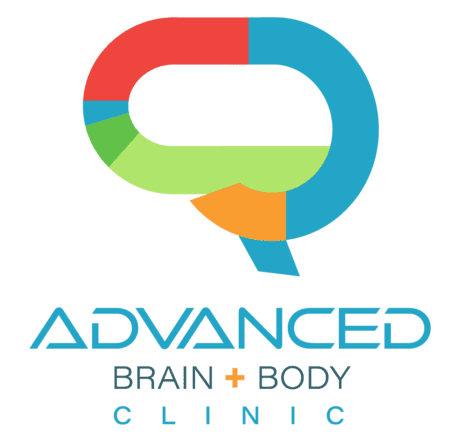In a recent blog, Ketamine Misconceptions: How One Patient’s ‘Weird’ Experience Could Have Been Life-Changing, I address some common misconceptions about ketamine that may be turning people away from this life-saving treatment. In addition to the details shared in this piece, it’s important to know that there is a wide range of patient experiences when ketamine is used in treating psychiatric conditions. This is due to a variety of factors: the treatment setting, the dosage given, how quickly the dosage is given, the patient’s mindset before and during the infusion, the support staff during the treatment process, and more.
Ketamine is extraordinarily effective for severe depression, suicidality, anxiety, and PTSD, even when patients with these conditions have not found relief with other treatments or medications. Still, the way you feel during the treatment may be hard to predict.
To make ketamine treatment as effective as possible for each patient, we consider the following:
Addressing treatment resistant mental illness is not a one-size-fits-all process.
At Manlove Brain + Body Health in Rapid City, SD and Advanced Brain + Body Clinic Ketamine TMS in Minneapolis, MN, we perform a thorough psychiatric examination on each patient. This exam includes an extensive lab evaluation, genetic testing, and a full psychiatric and physical history before collaborating with our patients on their treatment plan. Sometimes medications and psychotherapy are called for, but since most of our patients have treatment resistant mental illnesses (meaning they have already tried several medications without finding relief) we often start with ketamine or Transcranial Magnetic Stimulation.
Ketamine can be given intravenously, intramuscularly, or intranasally depending on patient response and preference.
Each treatment method has nuances that need to be considered. Since Ms. Barbara’s description of her ketamine experience in “I took ketamine for depression. Things got pretty weird.”, pertained to her experience with IV ketamine treatment, let’s focus on ketamine administered intravenously, understanding that ketamine can also be delivered intramuscularly or intranasally which will change the effect of the drug. Not all IV experiences with ketamine are equal. For example, just to start with mechanics, if the rate of the infusion is controlled by a precise intravenous pump, ketamine reaches the brain at an even, controlled rate. But if the infusion is controlled by hand, the flow of ketamine may be variable. That can result in too much or too little, changing the ketamine’s effect. Because we use an infusion pump that ensures a smooth, consistent flow of medicine, patients typically have a better experience with their infusion process. After each treatment we reassess the dose and rate to get the best result possible for each individual.
There are many ways your mindset can influence your experience during ketamine treatments.
Ketamine usually causes a dissociative experience: patients may feel spacey, have odd thoughts, or feel disconnected from their bodies. We have found that a calm, predictable, safe, and friendly environment usually makes the dissociative experience a positive one. Some people find it a pleasant experience, but others may not enjoy it. Even people who find the dissociation induced by ketamine unpleasant often note that their depression has improved after ketamine treatment. Adding strategies to improve physical and brain health may improve your response, even more, reduce the risk of relapse, and the need for subsequent treatments.The dissociation you feel during an infusion may differ from person to person. Some patients report:
- Seeing vivid colors
- Feeling like their thoughts are a storyline
- Having random and disconnected thoughts
- Normal things seeming strange or unreal
- Having a blank mind
- Feeling disconnected from their body
- Worrying that they will never feel normal again
- Being disappointed that they didn’t feel much of anything
It is important to let your mind take its own pathway during ketamine treatment. Experiences that direct your thoughts like talking to someone, phone calls, texting, or emailing all direct your mind away from the ketamine experience and can reduce the benefit you may get. Instead, we strongly encourage people to listen to music that is peaceful and does not have lyrics. Music without words affects you without engaging you cognitively. The rhythm and flow of music can help shape your experience. We also discourage reading and have found that simple meditation exercises seem to be helpful to patients.
The treatment setting can greatly impact your experience.
We keep things safe, quiet, meticulously clean, warm, and inviting. We schedule time for you to come back to your normal self and get grounded at the end of your treatment.
The number of infusions needed varies from person to person.
We generally start with 6 infusions over 2-3 weeks, but some people require more or less to get an excellent antidepressant response. You may find that some clinics offer a standard course of 6 treatments. We have found that even if patients had little response after their first 6 ketamine treatments, they can still greatly benefit from continuing their treatments. We monitor patients during and between ketamine treatments to determine the number of treatments needed to have an excellent response.
Many people need ongoing ketamine treatments to maintain their response, but often at a much-reduced frequency. Maintenance frequency varies from weekly to monthly or less. Your clinicians will help you determine the frequency needed to maintain remission.
I don’t want to overstate the potential benefits one might get from ketamine treatment. It is not for everyone, but it does help a high percentage of people with severe treatment resistant depression, suicidal thoughts, anxiety, and PTSD.
Ms. Barbara, the author of the New York Times Opinion piece “I took ketamine for depression. Things got pretty weird.”, and others like her might have had a different experience and outcome if the people providing the ketamine had done a better initial assessment and had a more refined treatment model. It is best to work with a psychiatrist in a psychiatric clinic specializing in treatment resistant depression and who has significant experience with this treatment process.
Between the two psychiatrists at MB+BH and AB+BH, Dr. Johns and I have administered approximately 15,000 ketamine treatments. We have studied ketamine extensively and know how to optimize the patient experience. We have adjusted how we provide ketamine over time to achieve the best possible results for our patients. And we continue to read medical literature, attend ketamine conferences, and connect with other practitioners providing ketamine care to stay on the cutting edge with this lifesaving therapy.
We love to see our patients get back to their best selves, thrive, connect with friends, and live a life of happiness and purpose. We believe ketamine can be a fabulous tool for achieving that goal. Hear from just a few of our Minneapolis patients about what ketamine has done for them:
“My experiences with TMS and the ketamine protocol have felt positive, safe, and effective. I was drowning, going down for the last time when I was referred to Manlove Brain & Body Health. This experience has been the life preserver I could finally hang onto. I’m not out of the water yet, but am firmly on the ladder and climbing.” – N.M
“Ketamine treatments have been a lifesaver for me. I am so grateful that Advanced Brain & Body Clinic Ketamine TMS exists.” – M.M.
“The treatments seem to be helping after a lifetime of suffering. Highly recommend!!!” – L.F.
Our goal is to treat all mental illnesses as fully and safely as possible. We go the extra mile to care for our patients throughout treatment. We work with most major insurance providers to make ketamine affordable.
Please call us if you suffer from severe depression, PTSD, anxiety, or suicidal thoughts and are looking for treatment near Minneapolis, MN.
Ketamine in the context of a full psychiatric treatment plan could make a transformative difference in your life.

Stephen Manlove, MD graduated from the University of Minnesota Medical School and completed residencies in Psychiatry and Internal Medicine through the University of Virginia Medical School. He holds multiple board certifications in psychiatry/neurology, internal medicine and forensic psychiatry. This deep understanding of medicine gives him a unique ability to practice truly holistic psychiatry—fusing lifestyle changes and brain health best practices with genetic testing and a detailed laboratory workup to develop a personalized plan for each patient. As an early adopter of transcranial magnetic stimulation (TMS) and ketamine/Spravato, he and the Advanced Brain + Body team have helped thousands of patients suffering from treatment resistant depression, anxiety and PTSD.

